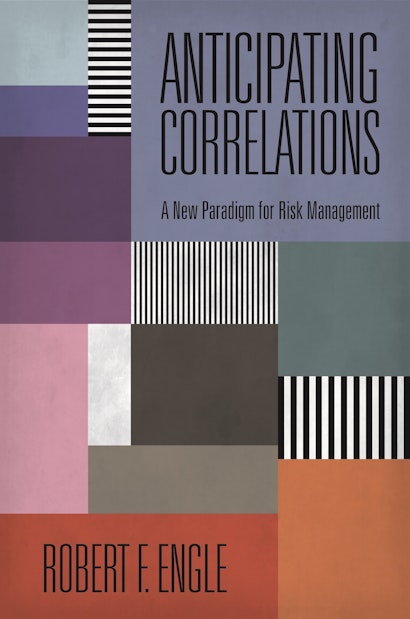Anticipating Correlations: A New Paradigm for Risk Management


Hardcover
ebook
- Sale Price:
- $47.60/拢40.60
- Price:
-
$68.00/拢58.00 - ISBN:
- Published:
- Jan 19, 2009
- Copyright:
- 2009
- 30 line illus.
- Main_subject:
- Economics & Finance
30% off with code PUP30
Financial markets respond to information virtually instantaneously. Each new piece of information influences the prices of assets and their correlations with each other, and as the system rapidly changes, so too do correlation forecasts. This fast-evolving environment presents econometricians with the challenge of forecasting dynamic correlations, which are essential inputs to risk measurement, portfolio allocation, derivative pricing, and many other critical financial activities. In Anticipating Correlations, Nobel Prize-winning economist Robert Engle introduces an important new method for estimating correlations for large systems of assets: Dynamic Conditional Correlation (DCC).
Engle demonstrates the role of correlations in financial decision making, and addresses the economic underpinnings and theoretical properties of correlations and their relation to other measures of dependence. He compares DCC with other correlation estimators such as historical correlation, exponential smoothing, and multivariate GARCH, and he presents a range of important applications of DCC. Engle presents the asymmetric model and illustrates it using a multicountry equity and bond return model. He introduces the new FACTOR DCC model that blends factor models with the DCC to produce a model with the best features of both, and illustrates it using an array of U.S. large-cap equities. Engle shows how overinvestment in collateralized debt obligations, or CDOs, lies at the heart of the subprime mortgage crisis—and how the correlation models in this book could have foreseen the risks. A technical chapter of econometric results also is included.
Based on the Econometric and Tinbergen Institutes Lectures, Anticipating Correlations puts powerful new forecasting tools into the hands of researchers, financial analysts, risk managers, derivative quants, and graduate students.
